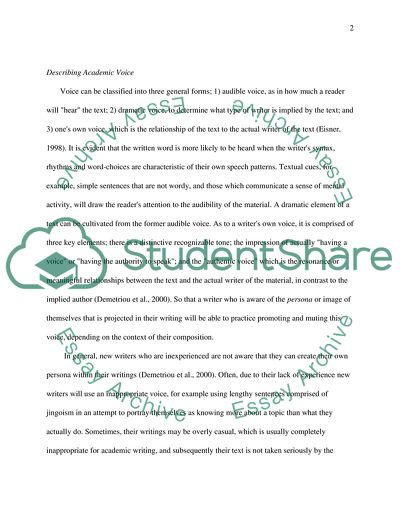Cite this document
(Academic Voice Assignment Example | Topics and Well Written Essays - 2000 words, n.d.)
Academic Voice Assignment Example | Topics and Well Written Essays - 2000 words. https://studentshare.org/education/1707165-the-concept-of-voice-is-useful-for-academic-writing-discuss
Academic Voice Assignment Example | Topics and Well Written Essays - 2000 words. https://studentshare.org/education/1707165-the-concept-of-voice-is-useful-for-academic-writing-discuss
(Academic Voice Assignment Example | Topics and Well Written Essays - 2000 Words)
Academic Voice Assignment Example | Topics and Well Written Essays - 2000 Words. https://studentshare.org/education/1707165-the-concept-of-voice-is-useful-for-academic-writing-discuss.
Academic Voice Assignment Example | Topics and Well Written Essays - 2000 Words. https://studentshare.org/education/1707165-the-concept-of-voice-is-useful-for-academic-writing-discuss.
“Academic Voice Assignment Example | Topics and Well Written Essays - 2000 Words”. https://studentshare.org/education/1707165-the-concept-of-voice-is-useful-for-academic-writing-discuss.


